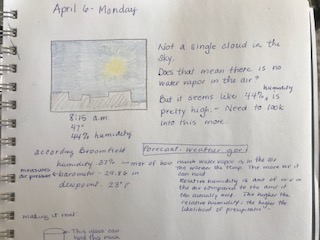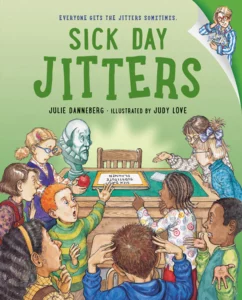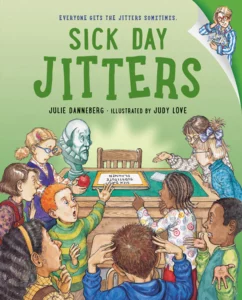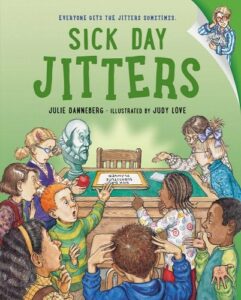
It’s not pots we are forming, it’s ourselves.” –M.C. Richards
I love this quote from M.C. Richards. He is talking about the art of pottery, but it could as easily apply to writing as well. I know that it applies to my own writing.
With fiction, as I write about how a character might react to and solve a conflict, I have to think through that process myself. What would I do in a similar situation? Would my reaction solve the problem? Would it make it worse? Have I ever been in a situation like this?
Obviously, thinking thorough other people’s problems, even if those other people are fictional, helps me grow. And if it is a problem I have already faced, such as the nerves encountered by the teacher in First Day Jitters, writing about that experience (although indirectly) allowed me to look at it from a distance, and to articulate my feelings about that situation in a way I hadn’t before.
With nonfiction, in order to authentically write about a subject, my research must not only help me learn about the subject, but also connect to it. And once the writing is done, the learning and the connection isn’t forgotten. It is a part of me, and my interest often continues and expands once the book is done. For instance, my most recently published book is The Science of Weather and Climate: Rain, Sleet and the Rising Tide. As part of my research, I kept a weather journal. Now, a year later, I am still at it and my growing interest in all-things-weather has turned into a rewarding and captivating hobby!
With both examples, just as M.C. Richards suggested, my writing has formed me. The learning, reflection and insight provided by various projects has definitely enriched my life, broadened my perspective and clarified or elevated my thinking. Because of my writing, I have met fascinating people (real and fictional, alive and dead), visited new places and dipped into unknown subjects. It has made me more appreciative and aware of the world around me.
Writing teachers provide this multi-level kind of real-life teaching. On the surface their assignments are aimed at lessons about the conventions of writing. But, in truth, those well-chosen assignments also help form their students as people, too.
This is a time when each of us is facing a reality that, will, in some way, “form” us. In this time of remote learning, giving students writing assignments, especially about the situations they are facing, their fears and anxieties, their questions, or just stories about their everyday lives, will help them form this new reality into valuable learning or insights as they move into the future.


